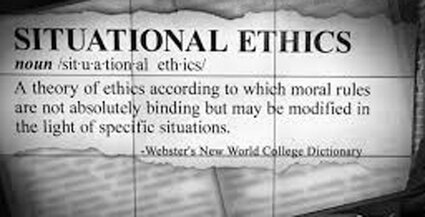A Morning Resonance
February 23, 2024
In our journey as followers of Christ, we are constantly confronted with the challenge of navigating a world rife with discordant voices. The recent tenor of public discourse, particularly in the political realm, compels us as pastors and leaders in the faith to ponder deeply the principles of our Christian ethics.
When we encounter language that disparages or belittles, especially when directed at individuals who have contributed significantly to our community, it is not merely a matter of poor etiquette; it is a profound deviation from the Christ-like way of love, respect, and humility.
I find it imperative to remind myself (and any who would listen) that every person is created in the image of God and thus deserves to be spoken of with dignity and respect. This is not simply a societal nicety but a Scriptural imperative.
Our faith tradition teaches us to seek understanding and to engage in dialogue that uplifts. Christ implores us to be peacemakers, to use our words and actions to build bridges rather than walls. This is not passive; it is an active, deliberate choice to embody grace in our interactions, even, and especially, in the face of profound disagreement.
In the realm of politics, where the temptation to resort to vilification is often overwhelming, we are called to a higher standard. Our discourse is expected t0 reflect the Kingdom of God and its values – values that prioritize truth, justice, and the common good over winning an argument or demeaning an opponent. We are called to be voices of reason and light in a world often darkened by division and strife.
Moreover, as leaders in the Christian community, it is our responsibility to model this standard of discourse. We must critically examine our language, ensuring it aligns with the teachings of Christ. Are our words contributing to healing and unity, or are they exacerbating division and pain? Our role is not just to preach but to practice as well as embody the profound message of love and respect that Christ exemplified.
Is it too much to ask that we as followers of Christ commit to a discourse that reflects the grace, compassion, and love at the heart of our faith? Let the words of our mouths and the meditations of our hearts be acceptable in the sight of Him who is both Lord and Redeemer. Let our words be a testament to the transformative power of the Gospel, which calls us to see the image of God in every person and to contribute constructively and respectfully to the betterment of our communities and our world.
Mark J. Chironna PhD
I have gone back and forth with my thinking about publishing this. Part of my concern is the emotional reaction we exhibit against blatant evil. Do we just sit back and let it happen? Most of our attention is drawn into character assignation, which goes nowhere. Will you ask an abortionist to council your children? Would you let them set up shop in your back yard, or drive them to work if their car breaks down? Will being nice, and respectful end the killing? It is not a matter of them and us. It is a matter of what is being said,s that “good is evil, and evil is good”.
We tend to just sit back and say “God will fight for us” and that we should “bless” everybody. “Blessed are the peacemakers”…If peacemaking were your end goal, would this end the threat and save lives? Sometimes peacemaking becomes the enablement of evil.
I know that this problem will demand a lot of wisdom and I don't claim to have this situation all tied up in a neat little package. It’s really really messy..but it is also black and white. Situational ethics come into play. Will you try to distort God’s final word on the matter? Maybe that is the core problem.
Blessings, Julie









Reader Comments(0)